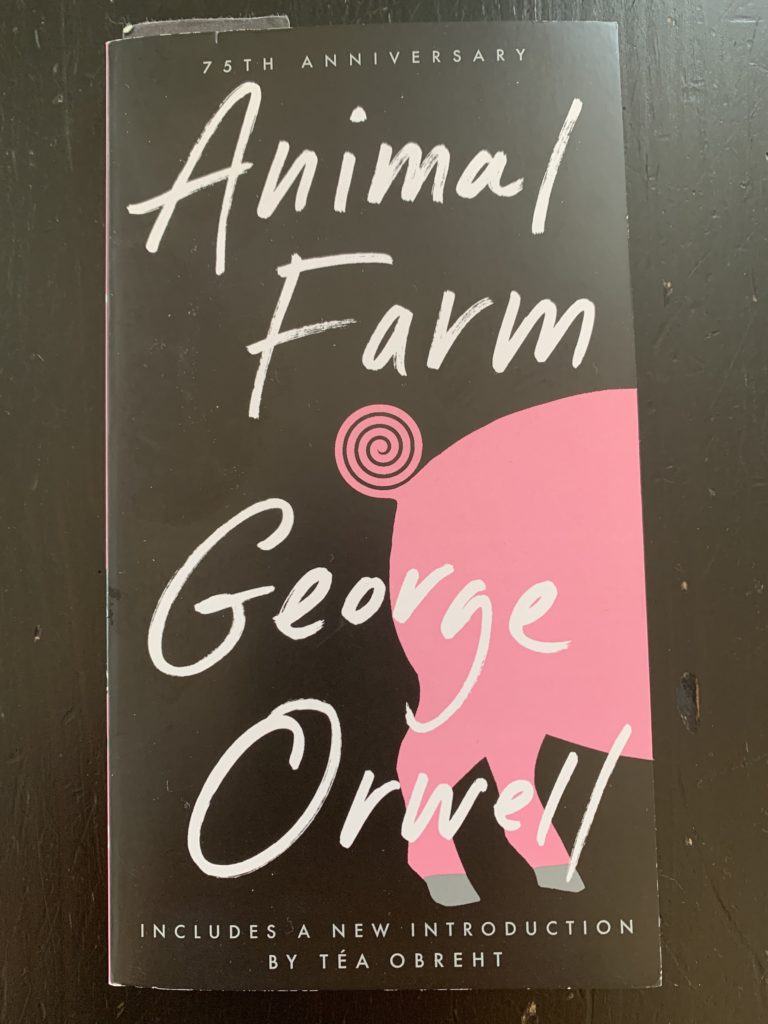This week I am combining chapters seven and eight. The reason is that I feel like they are continuations of the same themes. I had to sort of scratch to see if there was actually something new in these chapters. The truth is, I don’t feel like there actually was, but I looked a little deeper to see if there was anything else.

Starting out, the move to the boogeyman has become absurd. Chapter seven is where I think Orwell jumps from generally foretelling to the protest against totalitarianism. For some unexplainable reason many animals admit to conspiring with Snowball and against the Animal Farm. This of course has fatal consequences.
Knowing that they will be killed, the animals knowingly fabricate false and ongoing relationships with Snowball. Ultimately, they are punished for their crimes. I don’t know if this is because things are so bad that death is better than innocence? Or maybe it is this impending sense of fatality that whatever is going to happen regardless of what they say?
I was doing some reading, and this book was published in 1945. There is a thought that this is a direct corollary of the relationship between the Soviet Union and Nazi Germany. It very well could be that Farmer Fredrickson is Hitler personified and that Hitler betrayed Stalin with attacks on the Eastern Front.
In the book, Fredrickson buys the stack of lumber from Animal Farm. It turns out that the cash that was used was counterfeit. To make matters worse, this was immediately followed by the farmer’s attack and the sabotage of the windmill project. The animals fought back at a very high cost, just like Stalin.
I suppose what I am struggling with a little bit is that if Orwell is protesting totalitarianism in his writings, why then would he personify Stalin/Napoleon as a hero? It very well could be that Orwell is justifying Napoleon’s behavior by the sequencing of events. Or even possibly, this is just an interpretation of the facts and how they translated into history. I guess that we will have to wait until the book is finished to see.
I suppose that it is also possible that when the book was written, the opinion of Orwell of Stalin is not colored by the full force of his actions. Said another way, Stalin’s career was far from over in the mid 1940s. So, what may have looked like a hero in 1944 may not be so shiny in 2023. Again, I will form an overall opinion at the end of the book.
Finally, the cabal between the opinion of friend and foe and it’s daily change be it Snowball, Fredrickson and Pilkington is representative of politics. Hussein was a friend in the Iran/Iraq war and bin Laden was a friend against the Soviets but a foe in the war in terror. The time frame was different in real life but the concept is the same. It doesn’t matter what is said or who is the target, it only matters that everyone is focused how bad everything is at the moment.
End Your Programming Routine: Propaganda is programming. I think like I said last week that the Iron Law of Bureaucracy applies and that the minute a person starts blindly following a person versus an idea, they are fraught with the potential to be mislead. This is particularly true when that person is more into advancing the organization than the objective because it could be that the person is more misinterpreting the idea or that they know that they don’t have to justify their actions.
Recent Comments